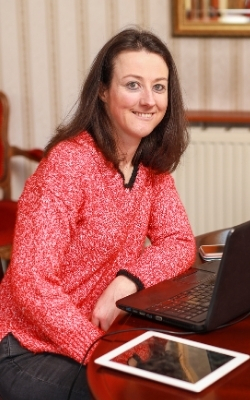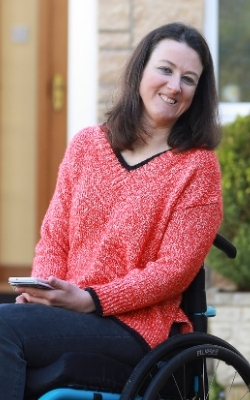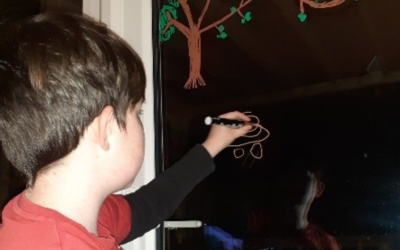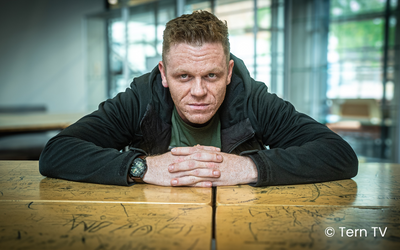Closing the disability assistance gap - Dr Julie McElroy
Author:
Dr Julie McElroy, disability rights campaigner and inspirational speaker.
Award-winning disability rights campaigner, inspirational public speaker and OU student Dr Julie McElroy, shares first-hand how supportive access to higher education can empower people with disabilities, ahead of Disability Awareness Day on Sunday (25 October 2020).
The World Health Organisation has indicated that more than two billion people will need assistive technologies by 2030. Currently only one million people in the UK have access to assistive technology. There is a need to address the considerable gap in the provision in all sectors.
Assistive technologies have been an enabler for me to lead an independent and active life, whether that be in education, employment and accessing online services. Assistive technologies are helpful, adaptive devices for people with disabilities, such as voice recognition devices that translate speech into text.
I have Cerebral Palsy which has resulted in walking difficulties along with a speech and hearing impairment and manual dexterity problems. Assistive technologies and implementing accessible learning solutions has been key to my success.
Over the years, my disability rights work and research interests have centred on assistive technologies. I research and develop advanced products, services and devices for disabled or less-abled people, to enable them to live a dynamic, independent life to the full, anywhere. More recently, my specialism, expertise and engagement has focussed on human rights in relation to accessibility.
I worked with the Scottish Government during the past couple of years on employability measures for young offenders and accessibility policy. I’ve also recently worked with the Glasgow Science Centre, advising on digital accessibility and the development of an accessibility mobile app.
My learning experience has been a pleasant one despite the challenges that education brings for individuals with disabilities. My main influences were my older brother and twin sister, both of whom are able bodied, and I have always strived to have the same life opportunities.
Having attended primary and secondary additional needs schools in Glasgow, I went on to gain a Higher National Diploma in Information Systems at Glasgow Clyde College, then a Bachelor of Science Honours degree and a Doctor of Philosophy (PhD) at the University of the West of Scotland.
My PhD studies involved investigating the experiences of further and higher education students with disabilities who use assistive technology in their learning.
Last year I completed my Master of Knowledge Exchange with the University of Strathclyde, looking at the globalisation of disability entrepreneurship and re-utilisation of assistive technologies.
It is through my personal experiences I have come to believe that I have a lot to offer in the area of disability rights and its relationship to law. The area of disability law is a complex and a rapidly evolving area in which there are many challenges to develop legislations to protect people with disabilities’ human rights in society.
The Open University (OU) offers flexibility and accessibility. I’ve had a positive experience with the OU and it has been down to the fantastic lecturers who have understood my objectives in gaining an understanding of legal contexts.
It was through my OU studies that it became apparent to me that some countries in the world have specific human right legislations to address accessibility, whether it’s physical and social infrastructures along with technological advancements.
Going forward, there is a need for an inclusive universal design approach to be embedded in all types of processes, policies, and products and for services to be designed to be usable by everyone, to the utmost extent possible and without the need for modification or specific design.
Around a quarter of Open University in Scotland students have a disability. The OU provides a range of support for students with disabilities, including financial help, specialist equipment, accessible study materials, and tailored assessment. More info at www.open.ac.uk/courses/do-it/disability.
Dr Julie McElroy was inducted into the Scotland’s College Development Network’s Hall of Fame earlier this year, as a role model in her field and an inspiration to students. Last year she delivered a TEDx Open University talk and was a finalist in the Rising Star category of the Scottish Women in Technology Awards.
This blog was originally published by The Scotsman.
Photos © Michael McGurk
News
Media contacts
Media enquiries
OU in Scotland Media Relations:
Call 0131 549 7932
OU UK Press Office:
Call 01908 654316
Out-of-hours:
07901 515 891
Visit our OU UK news site

